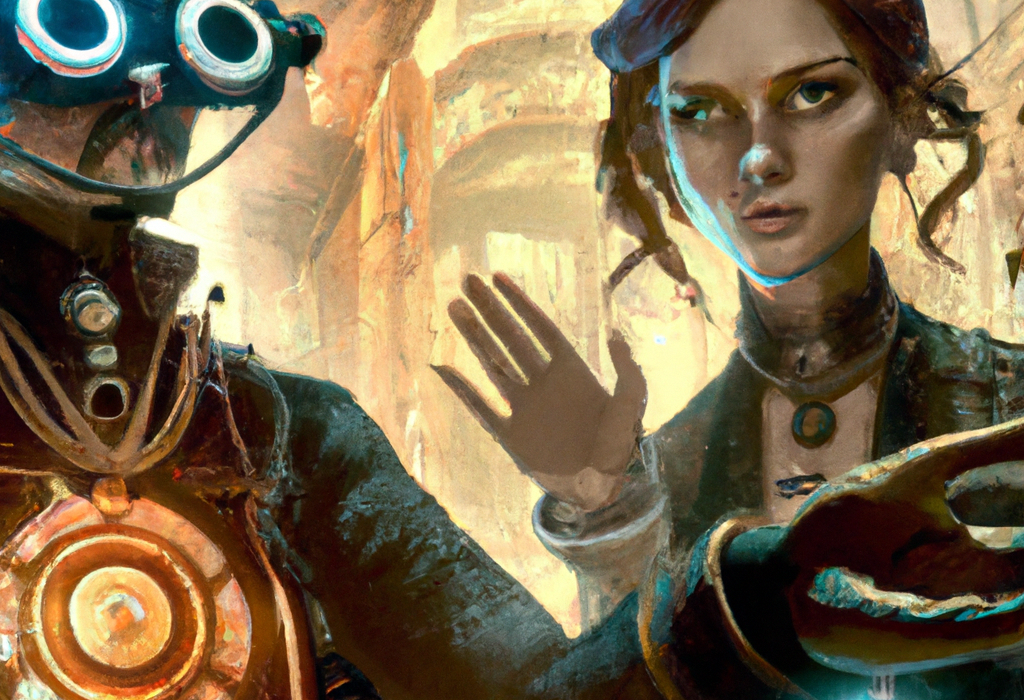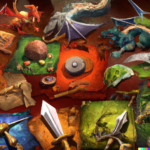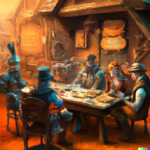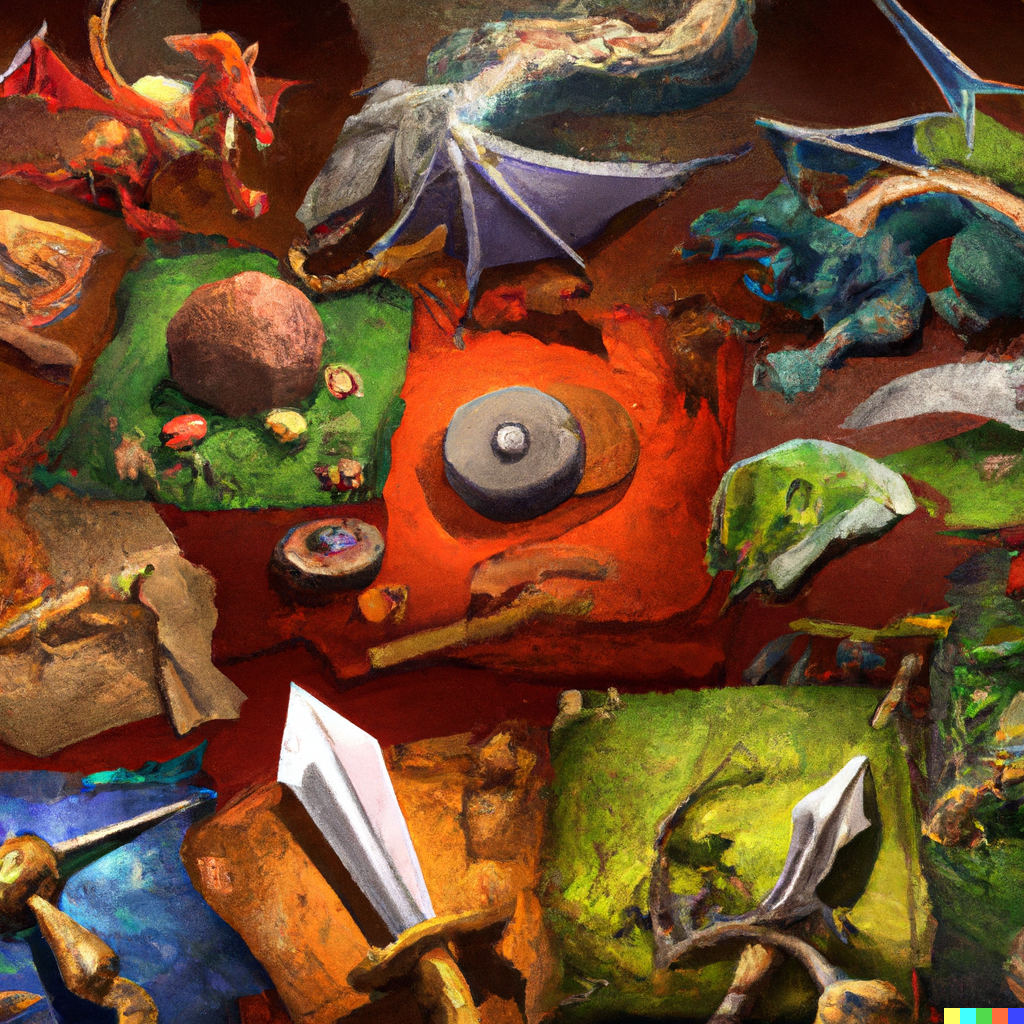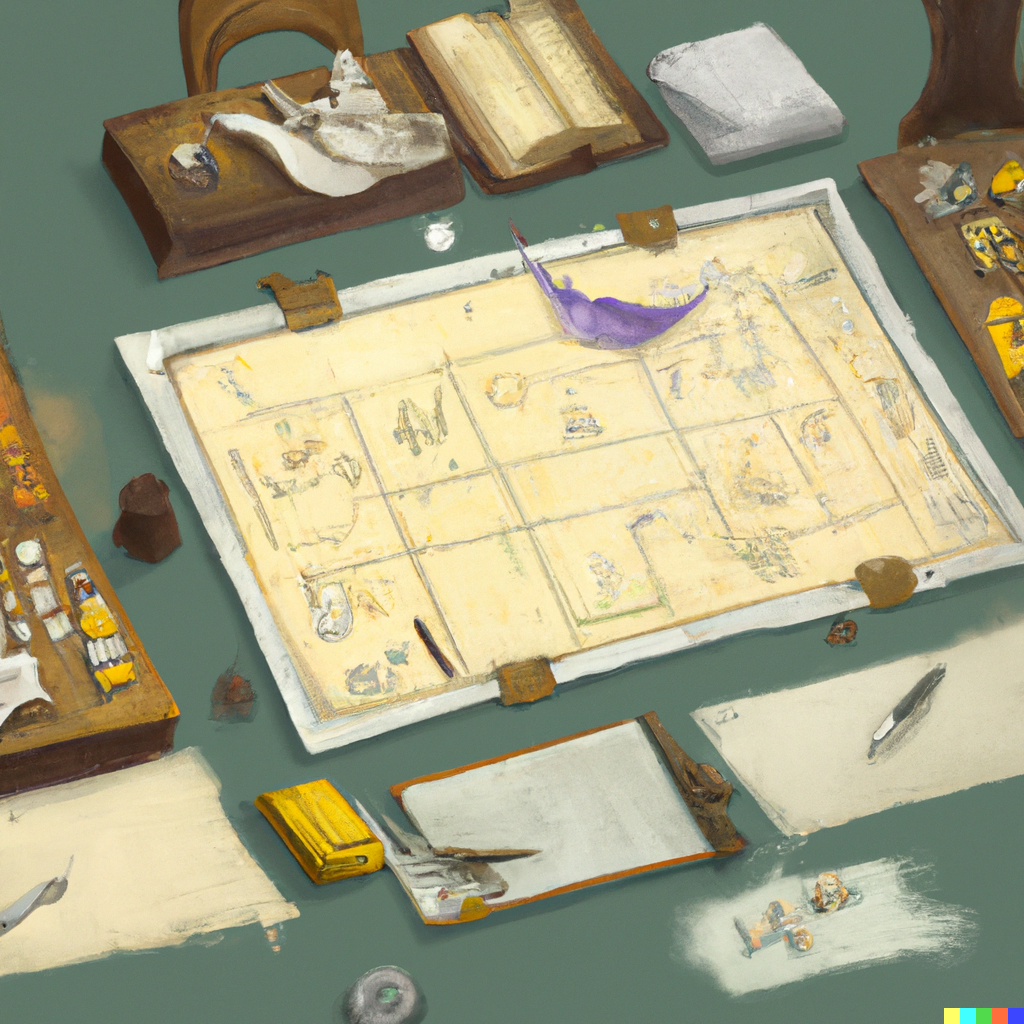The Origin of Tabletop Role-Playing Games
Tabletop role-playing games (RPGs) have been a popular hobby for decades, allowing players to embark on immersive adventures with their friends. But where did this hobby come from, and how has it evolved over the years? In this article, we’ll explore the origin of tabletop RPGs and how they have evolved.
The Origins of Tabletop RPGs
The origins of tabletop RPGs can be traced back to the 1950s and 1960s, with the creation of wargames. These games simulated military battles and were played with miniature figurines and dice. In the late 1960s, a new type of wargame emerged known as “Chainmail,” which included fantasy elements such as magic and monsters.
The first true tabletop RPG, “Dungeons & Dragons,” was created in the 1970s by Gary Gygax and Dave Arneson. “Dungeons & Dragons,” or D&D, took the fantasy elements of “Chainmail” and expanded upon them, allowing players to create their own characters and embark on adventures in a fantasy world. D&D was an immediate success and spawned numerous imitators and successors.
The Evolution of Tabletop RPGs
Since the creation of D&D, tabletop RPGs have evolved significantly. One major development was the creation of other genres beyond fantasy, such as science fiction, horror, and post-apocalyptic. This allowed for a wider range of storytelling and character-creation options.
Another major evolution was the introduction of new mechanics and gameplay systems. Many tabletop RPGs now use more complex systems for character creation, combat, and other gameplay elements. There has also been a focus on narrative and role-playing, with an emphasis on character development and story-driven gameplay.
In addition, tabletop RPGs have expanded beyond the traditional pen-and-paper format. Many games now include additional components such as miniatures, dice with specialized symbols, and even digital supplements.
The Impact of Tabletop RPGs
Tabletop RPGs have significantly impacted popular culture and the gaming industry. Many video games, particularly role-playing games, have been inspired by tabletop RPGs and have incorporated elements such as character creation and open-world exploration. Tabletop RPGs have also inspired other media, such as television shows and films.
In addition, tabletop RPGs have fostered a sense of community and inclusivity. Many players form groups with their friends and play regularly, forming strong bonds with one another. Numerous conventions and meet-ups are also dedicated to tabletop RPGs, allowing players to connect with like-minded individuals.
Tabletop RPGs have come a long way since their humble beginnings in the 1970s. From their fantasy roots, they have evolved to include a wide range of genres and mechanics, significantly impacting popular culture and the gaming industry. They continue to be a popular hobby for players worldwide, fostering a sense of community and inclusivity. It will be interesting to see how tabletop RPGs continue to evolve in the future.


